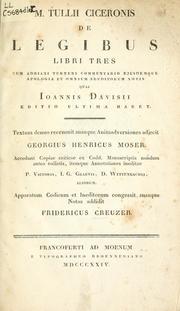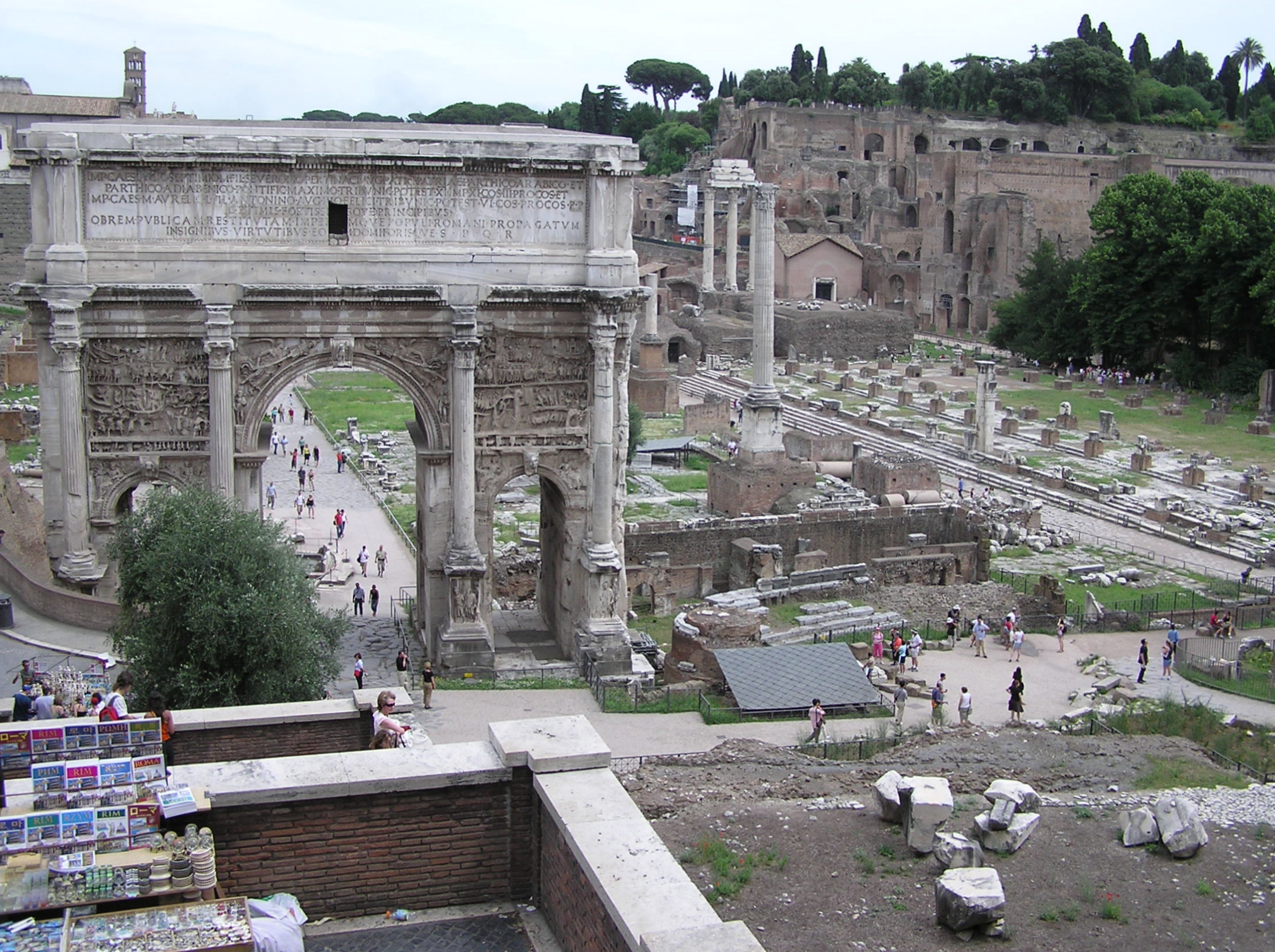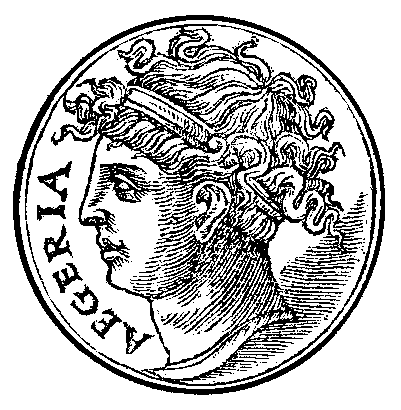|
De Legibus
The ''De Legibus'' (''On the Laws'') is a dialogue written by Marcus Tullius Cicero during the last years of the Roman Republic. It bears the same name as Plato's famous dialogue, '' The Laws''. Unlike his previous work ''De re publica,'' in which Cicero felt compelled to set the action in the times of Scipio Africanus Minor, Cicero wrote this work as a fictionalized dialogue between himself, his brother Quintus and their mutual friend Titus Pomponius Atticus. The dialogue begins with the trio taking a leisurely stroll through Cicero's familial estate at Arpinum and they begin to discuss how the laws should be. Cicero uses this as a platform for expounding on his theories of natural law of harmony among the classes. The three surviving books (out of an indeterminate number, although Jonathan Powell and Niall Rudd in their translation for Oxford seem to argue that it may have been six, to bring it in line with the number in ''de re publica''), in order, expound on Cicero's be ... [...More Info...] [...Related Items...] OR: [Wikipedia] [Google] [Baidu] |
Marcus Tullius Cicero
Marcus Tullius Cicero ( ; ; 3 January 106 BC – 7 December 43 BC) was a Roman statesman, lawyer, scholar, philosopher, and academic skeptic, who tried to uphold optimate principles during the political crises that led to the establishment of the Roman Empire. His extensive writings include treatises on rhetoric, philosophy and politics, and he is considered one of Rome's greatest orators and prose stylists. He came from a wealthy municipal family of the Roman equestrian order, and served as consul in 63 BC. His influence on the Latin language was immense. He wrote more than three-quarters of extant Latin literature that is known to have existed in his lifetime, and it has been said that subsequent prose was either a reaction against or a return to his style, not only in Latin but in European languages up to the 19th century. Cicero introduced into Latin the arguments of the chief schools of Hellenistic philosophy and created a Latin philosophical vocabulary ... [...More Info...] [...Related Items...] OR: [Wikipedia] [Google] [Baidu] |
Conservatism
Conservatism is a cultural, social, and political philosophy that seeks to promote and to preserve traditional institutions, practices, and values. The central tenets of conservatism may vary in relation to the culture and civilization in which it appears. In Western culture, conservatives seek to preserve a range of institutions such as organized religion, parliamentary government, and property rights. Conservatives tend to favor institutions and practices that guarantee stability and evolved gradually. Adherents of conservatism often oppose modernism and seek a return to traditional values, though different groups of conservatives may choose different traditional values to preserve. The first established use of the term in a political context originated in 1818 with François-René de Chateaubriand during the period of Bourbon Restoration that sought to roll back the policies of the French Revolution. Historically associated with right-wing politics, the term ha ... [...More Info...] [...Related Items...] OR: [Wikipedia] [Google] [Baidu] |
Pompey
Gnaeus Pompeius Magnus (; 29 September 106 BC – 28 September 48 BC), known in English as Pompey or Pompey the Great, was a leading Roman general and statesman. He played a significant role in the transformation of Rome from republic to empire. He was (for a time) a student of Roman general Sulla as well as the political ally, and later enemy, of Julius Caesar. A member of the senatorial nobility, Pompey entered into a military career while still young. He rose to prominence serving the dictator Sulla as a commander in the civil war of 83–82 BC. Pompey's success as a general while young enabled him to advance directly to his first Roman consulship without following the traditional '' cursus honorum'' (the required steps to advance in a political career). He was elected as Roman consul on three occasions. He celebrated three Roman triumphs, served as a commander in the Sertorian War, the Third Servile War, the Third Mithridatic War, and in va ... [...More Info...] [...Related Items...] OR: [Wikipedia] [Google] [Baidu] |
Tusculum
Tusculum is a ruined Roman city in the Alban Hills, in the Latium region of Italy. Tusculum was most famous in Roman times for the many great and luxurious patrician country villas sited close to the city, yet a comfortable distance from Rome (notably the villas of Cicero and Lucullus). Location Tusculum is located on Tuscolo hill on the northern edge of the outer crater rim of the Alban volcano. The volcano itself is located in the Alban Hills south of the present-day town of Frascati. The summit of the hill is above sea level and affords a view of the Roman Campagna, with Rome lying to the north-west. It had a strategic position controlling the route from the territory of the Aequi and the Volsci to Rome which was important in earlier times. Later Rome was reached by the Via Latina (from which a branch road ascended to Tusculum, while the main road passed through the valley to the south of it), or by the Via Labicana to the north. Most of the ancient city and the acropol ... [...More Info...] [...Related Items...] OR: [Wikipedia] [Google] [Baidu] |
Cato The Elder
Marcus Porcius Cato (; 234–149 BC), also known as Cato the Censor ( la, Censorius), the Elder and the Wise, was a Roman soldier, senator, and historian known for his conservatism and opposition to Hellenization. He was the first to write history in Latin with his ''Origines'', a now fragmentary work on the history of Rome. His work '' De agri cultura'', a rambling work on agriculture, farming, rituals, and recipes, is the oldest extant prose written in the Latin language. His epithet "Elder" distinguishes him from his great-grandson Cato the Younger, who opposed Julius Caesar. He came from an ancient Plebeian family who were noted for their military service. Like his forefathers, Cato was devoted to agriculture when not serving in the army. Having attracted the attention of Lucius Valerius Flaccus, he was brought to Rome and began to follow the ''cursus honorum'': he was successively military tribune (214 BC), quaestor (204), aedile (199), praetor (198), consul (195) together ... [...More Info...] [...Related Items...] OR: [Wikipedia] [Google] [Baidu] |
Epicurean
Epicureanism is a system of philosophy founded around 307 BC based upon the teachings of the ancient Greek philosopher Epicurus. Epicureanism was originally a challenge to Platonism. Later its main opponent became Stoicism. Few writings by Epicurus have survived. However, there are independent attestations of his ideas from his later disciples. Some scholars consider the epic poem '' De rerum natura'' (Latin for ''On the Nature of Things'') by Lucretius to present in one unified work the core arguments and theories of Epicureanism. Many of the scrolls unearthed at the Villa of the Papyri at Herculaneum are Epicurean texts. At least some are thought to have belonged to the Epicurean philosopher Philodemus. Epicurus also had a wealthy 2nd-century AD disciple, Diogenes of Oenoanda, who had a portico wall inscribed with tenets of the philosophy erected in Oenoanda, Lycia (present day Turkey). Epicurus was an atomic materialist, following in the steps of Democritus. His material ... [...More Info...] [...Related Items...] OR: [Wikipedia] [Google] [Baidu] |
Egeria (mythology)
Egeria (, grc, Ἠγερία) was a nymph attributed a legendary role in the early history of Rome as a divine consort and counselor of Numa Pompilius, the second king of Rome, to whom she imparted laws and rituals pertaining to ancient Roman religion. Her name is used as an eponym for a female advisor or counselor. Origin and etymology Egeria may predate Roman myth: she could have been of Italic origin in the sacred forest of Aricia in Latium, her immemorial site, which was equally the grove of Diana Nemorensis ("Diana of Nemi"). At Aricia there was also a Manius Egerius, a male counterpart of Egeria. The name ''Egeria'' has been diversely interpreted. Georges Dumézil proposed it came from ''ē-gerere'' ("bear out"), suggesting an origin from her childbirth role. It may mean "of the black poplar" (Greek αἴγειρος, ''aigeiros''). Her role as prophetess and author of "sacred books" would compare her to the Etruscan figure of Vegoia (alleged author among other thi ... [...More Info...] [...Related Items...] OR: [Wikipedia] [Google] [Baidu] |
Roman Kingdom
The Roman Kingdom (also referred to as the Roman monarchy, or the regal period of ancient Rome) was the earliest period of Roman history when the city and its territory were ruled by kings. According to oral accounts, the Roman Kingdom began with the city's founding 753 BC, with settlements around the Palatine Hill along the river Tiber in central Italy, and ended with the overthrow of the kings and the establishment of the Republic 509 BC. Little is certain about the kingdom's history as no records and few inscriptions from the time of the kings survive. The accounts of this period written during the Republic and the Empire are thought largely to be based on oral tradition. Origin The site of the founding of the Roman Kingdom (and eventual Republic and Empire) had a ford where one could cross the river Tiber in central Italy. The Palatine Hill and hills surrounding it provided easily defensible positions in the wide fertile plain surrounding them. Each of these features c ... [...More Info...] [...Related Items...] OR: [Wikipedia] [Google] [Baidu] |
Gaius Marius
Gaius Marius (; – 13 January 86 BC) was a Roman general and statesman. Victor of the Cimbric and Jugurthine wars, he held the office of consul an unprecedented seven times during his career. He was also noted for his important reforms of Roman armies. He set the precedent for the shift from the militia levies of the middle Republic to the professional soldiery of the late Republic; he also improved the '' pilum'', a javelin, and made large-scale changes to the logistical structure of the Roman army. Rising from a well-off provincial Italian family in Arpinum, Marius acquired his initial military experience serving with Scipio Aemilianus at the Siege of Numantia in 134 BC. He won election as tribune of the plebs in 119 BC and passed a law limiting aristocratic interference in elections. Barely elected praetor in 115 BC, he next became the governor of Further Spain where he campaigned against bandits. On his return from Spain he married Julia, the aunt of J ... [...More Info...] [...Related Items...] OR: [Wikipedia] [Google] [Baidu] |
Roman Consul
A consul held the highest elected political office of the Roman Republic ( to 27 BC), and ancient Romans considered the consulship the second-highest level of the ''cursus honorum'' (an ascending sequence of public offices to which politicians aspired) after that of the censor. Each year, the Centuriate Assembly elected two consuls to serve jointly for a one-year term. The consuls alternated in holding '' fasces'' – taking turns leading – each month when both were in Rome and a consul's ''imperium'' extended over Rome and all its provinces. There were two consuls in order to create a check on the power of any individual citizen in accordance with the republican belief that the powers of the former kings of Rome should be spread out into multiple offices. To that end, each consul could veto the actions of the other consul. After the establishment of the Empire (27 BC), the consuls became mere symbolic representatives of Rome's republican heritage and held very little ... [...More Info...] [...Related Items...] OR: [Wikipedia] [Google] [Baidu] |
Rubicon
The Rubicon ( la, Rubico; it, Rubicone ; rgn, Rubicôn ) is a shallow river in northeastern Italy, just north of Rimini. It was known as Fiumicino until 1933, when it was identified with the ancient river Rubicon, famously crossed by Julius Caesar in 49 BC. The river flows for around from the Apennine Mountains to the Adriatic Sea through the south of the Emilia-Romagna region, between the towns of Rimini and Cesena. History The Latin word comes from the adjective , meaning "red". The river was so named because its waters are colored red by iron deposits in the riverbed. During the Roman Republic, the Rubicon marked the boundary between the Roman province of Cisalpine Gaul and Italy proper, controlled directly by Rome and its (allies), to the south. On the north-western side, the border was marked by the river Arno, a much wider and more important waterway, which flows westward from the Apennine Mountains (the Arno and the Rubicon rise not far from each other) into the T ... [...More Info...] [...Related Items...] OR: [Wikipedia] [Google] [Baidu] |









